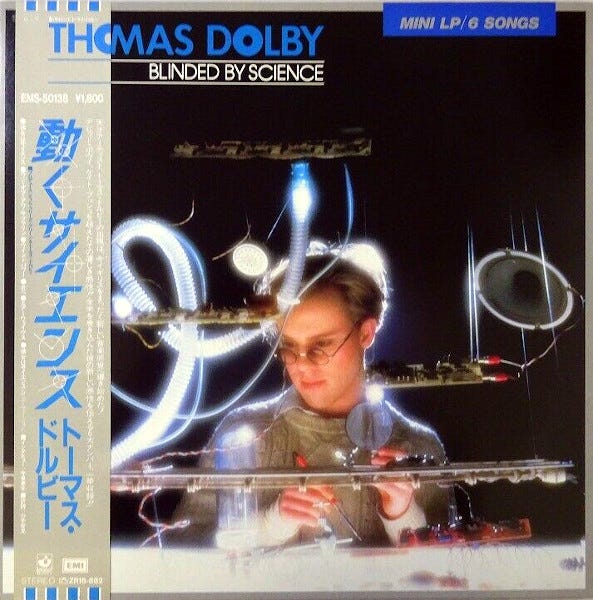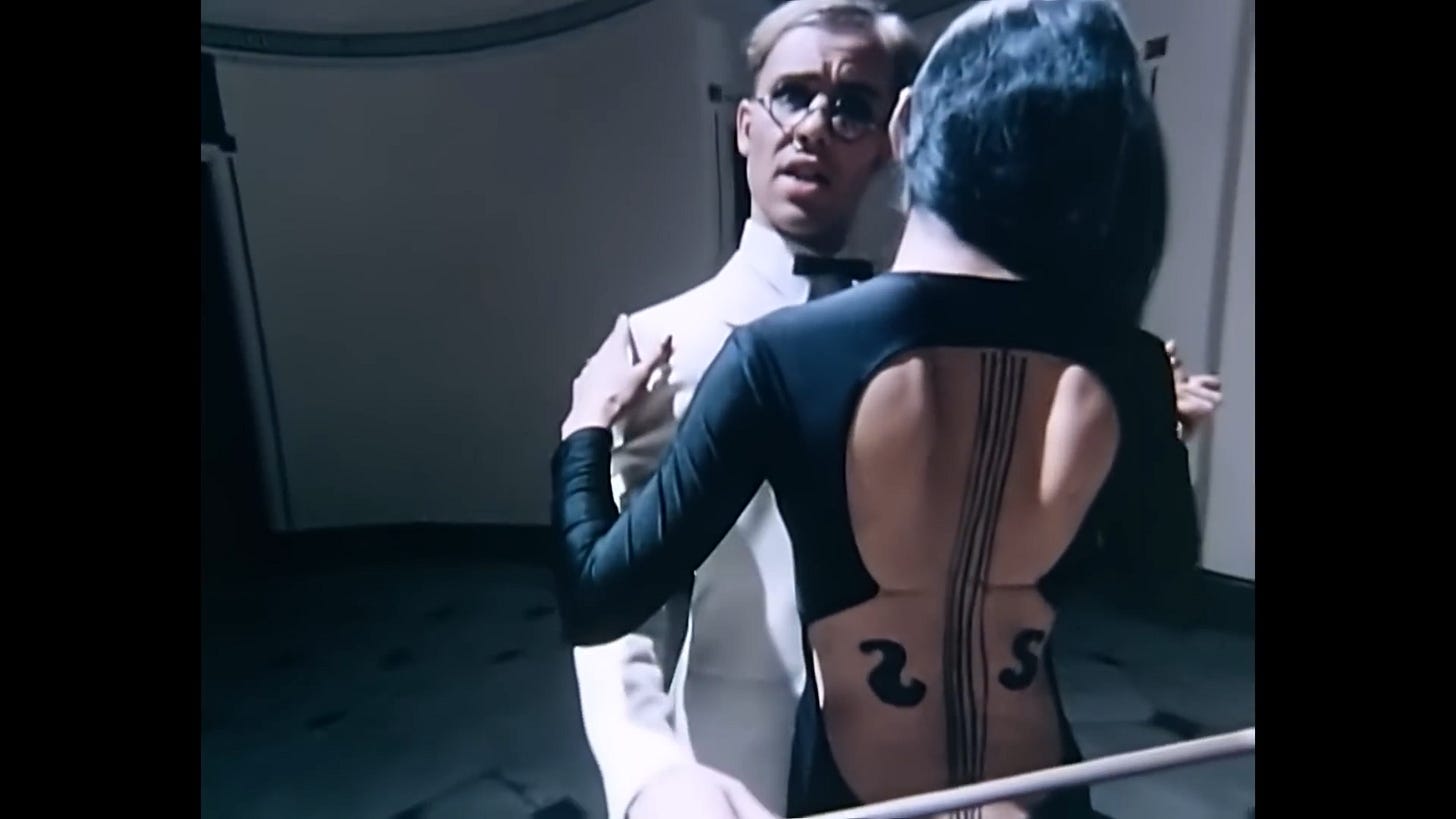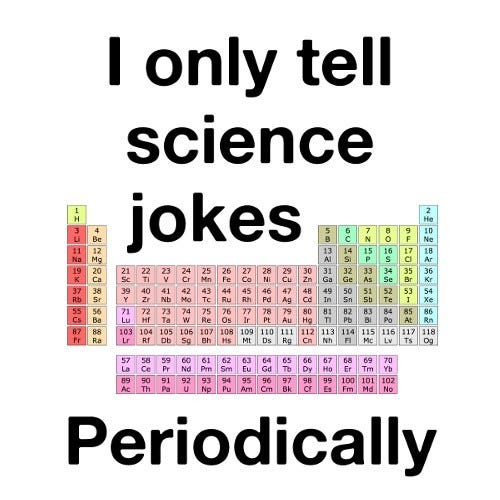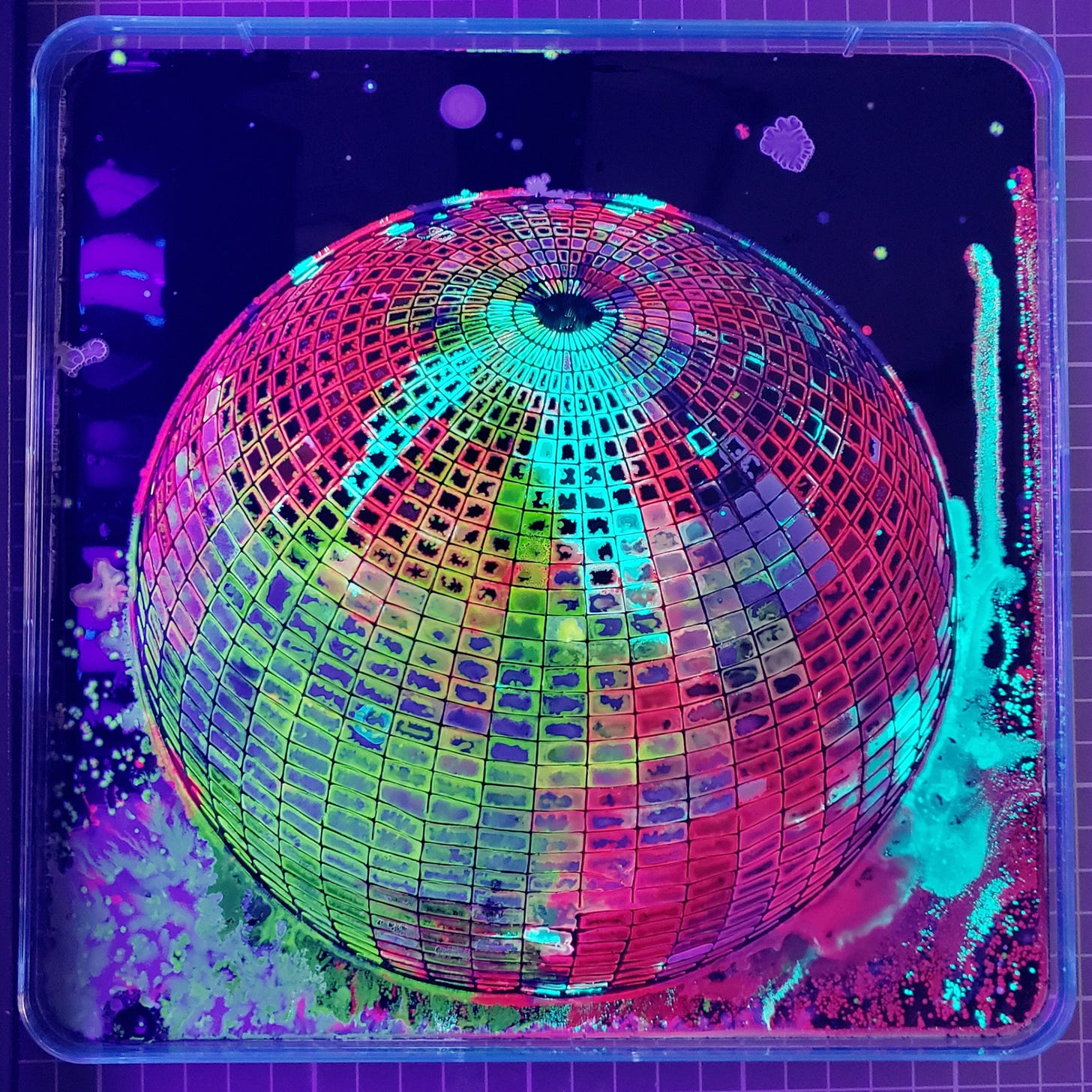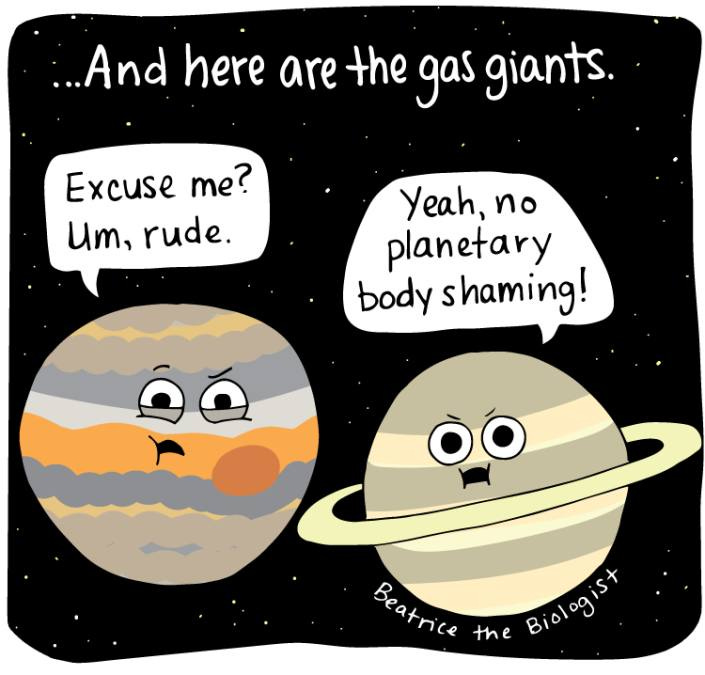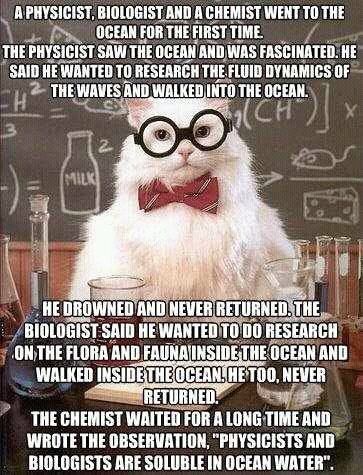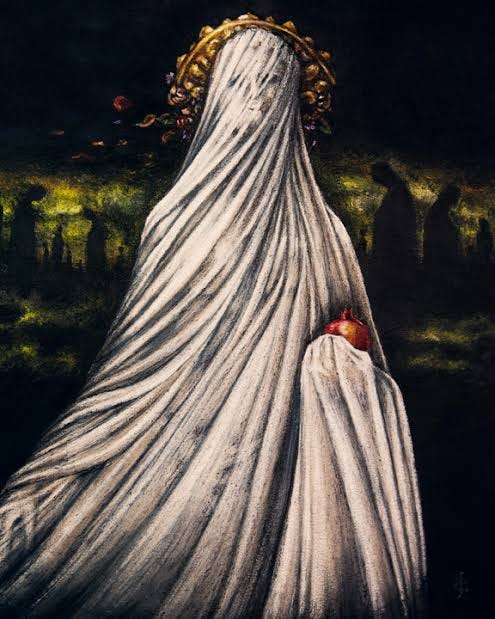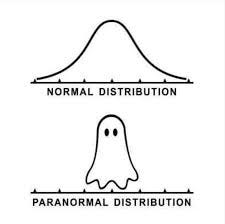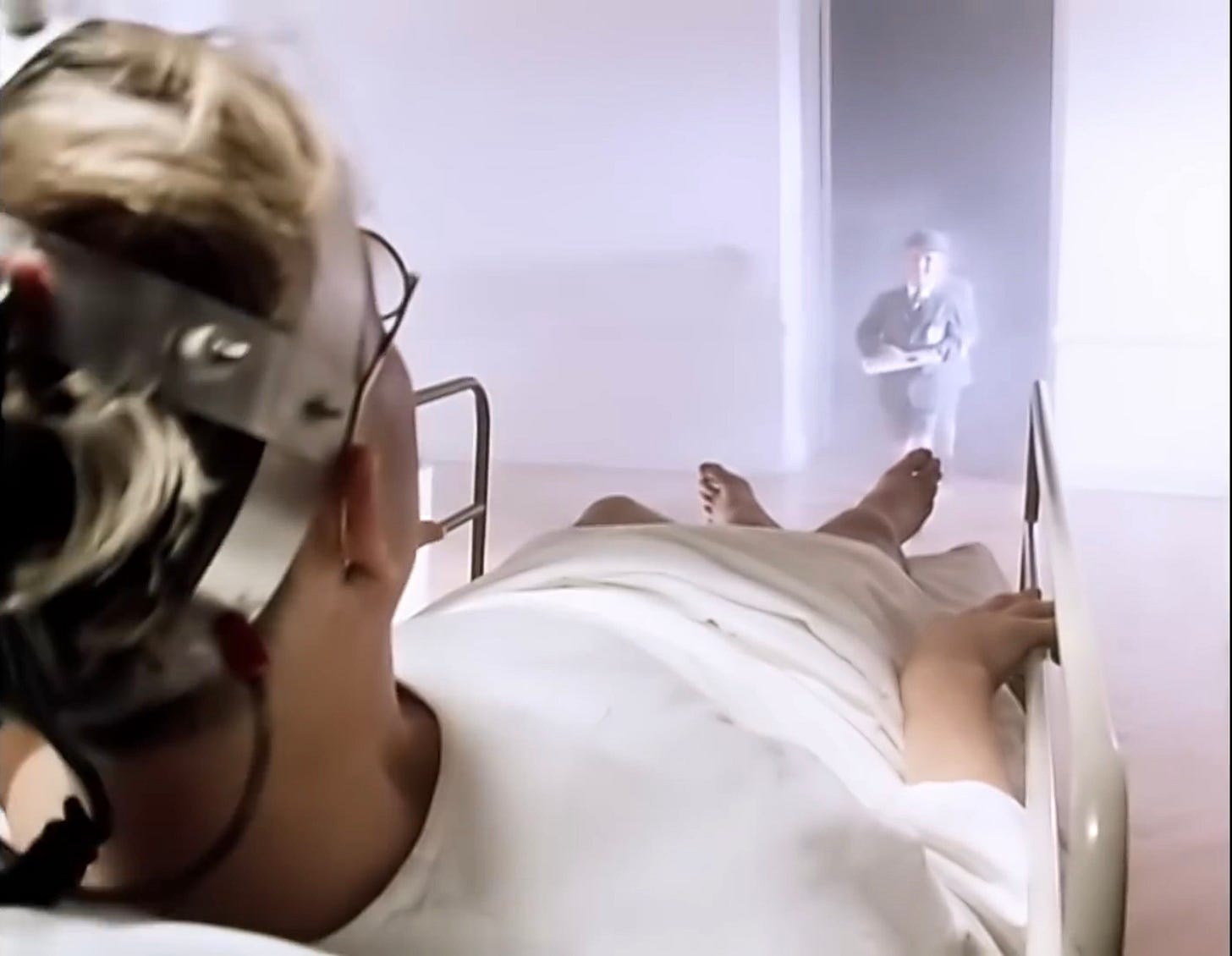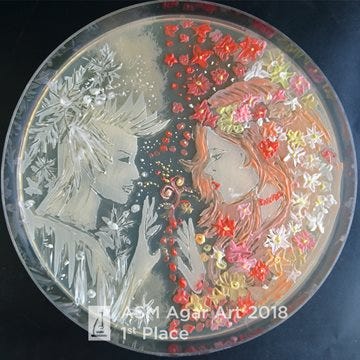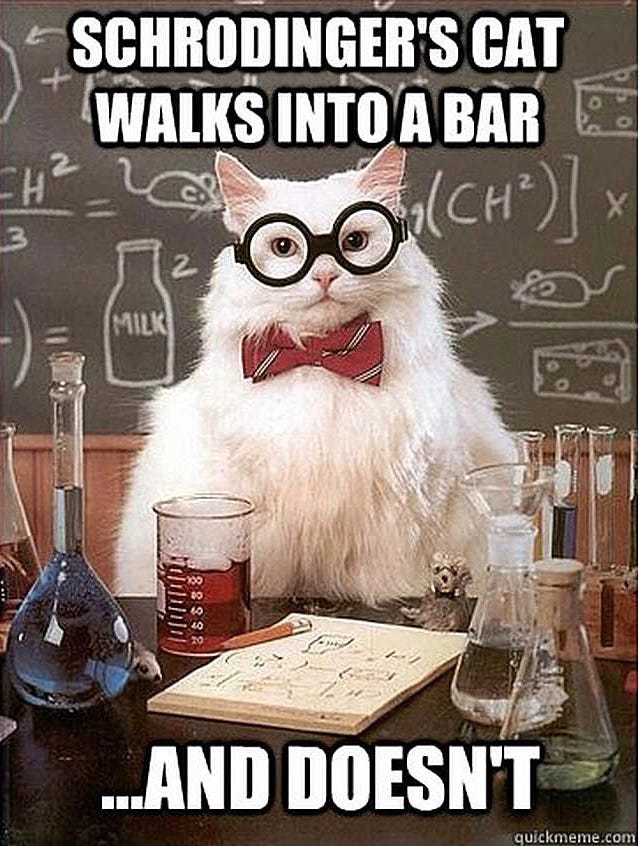Thank you, Thomas Dolby, for your 1982 quirky world-changing glorious cheesy love/science anthem “She Blinded Me With Science”.
Weird is a big part what sets speculative poetry into its own genre. Science and technology also are part of the specpo umbrella. These are empirical things and fit strangely in the speculative genre.
Lyrics of speculative poetry using science and metaphysics by Dolby-
“Ha, it's poetry in motion
Now she's making love to me
The spheres are in commotion
The elements in harmony
She blinded me with science
(She blinded me with science)
And hit me with technology
Hey, I don't believe it
There she goes again
She's tidied up and I can't find anything
All my tubes and wires
And careful notes
And antiquated notions”
But how weird is weird and how much is just metaphor when it comes to science poetry? Just adding “Science!” is not enough to make a poem speculative.
We will not be debating sci-ku, linked science themed haiku, or clearly speculative science poems like Mary Soon Lee’s famous “Elemental Haiku”. Facts and speculation merge in this poem. The periodic table becomes poetry, even the exotic strange elements that exist only momentarily and repeatedly under lab settings have a haiku. There are 119 sci-ku in this interactive poem, one for each of the 118 elements, and a poem for element 119, named “ununennium” here, imagined peering from the unknown.
We will discuss sciences, the environment and when hard science goes poetic, though!
A poem about an archaeological dig is not speculative themed. A poem that is about an archaeological or paleontology dig that finds a dragon or something not real is speculative poetry. It would need to be an actual dragon, not the poet merely imagining dragons looking at dinosaur bones.
Early fossils were believed to be bones of fantastical beasts. If the poem finds some thing that we know what it is and it is not fantastical, mythical, or unreal, as well a poem using the current time and place as the setting of the poem, plus the data, experience and knowledge we have now, it is not speculative.
If we go into a poem about a dig in Pompeii and find a unicorn, a spacecraft, or a modern watch, something improbable and inexplicable or anomalous- it is speculative. If we dig in Pompeii and find a private personal spa in a home, it is now not speculative. But if the spa is electroplated in Unobtanium somehow, or ghosts of the villa are using it, it is suddenly speculative. We have 3-D subterranean imaging although expensive, but an oddly gifted person dowsing for fossils is speculative.
Microbiology Petri Dish Art under UV
If the dig is set in the far far future and uncovers a scene from here and now and it’s done with technology that does not exist is used in a dig, like gravity repellers, plasma scalpels, micron-filament brushes and such, it is clearly a speculative archeological or paleontology poem.
If we are on a strange planet and find fossils for creatures we do not know or doing geology and discover plate tectonics that defy our human knowledge, it is clearly speculative science poetry. Strange alloys with unusual properties, new botanical plants, sentient planets, violations of known laws of nature, physics facts, and impossible physics, even discovering “hyperquantum magnets” (whatever they would be, and to me they would’ve only work when you’re looking at them, like a few of my old fridge magnets. But not rare earth magnets, because those are real and not speculative.) Wormholes that are stable and connect solar system-crossed lovers across time and space and defy all scientific laws and theories- speculative.
If a technological or scientific imagined thing is a subject of the poem or appears in a poem it is speculative. “What if” a reader with science possibilities, not empirical fact, and it’s speculative poetry.
Even the social sciences, or “soft sciences”, are areas where speculative poetry can come from and be written about. Sociology and history can talk about hunter gatherers in another world, lost civilizations discovered on the moons of a Goldilocks zone planet we’re colonizing, terraforming, mutations from radiation making a colony develop psychic powers, the rise and fall of an empire of dreams or mythical places, create institutions, imagine new societies, dismantle outdated social institutions and hypothesize their replacements.
Psychological horror is speculative. Poe’s “The Raven” again, horror poet peers. But poetry about mental illness is real, when framed in an unreal non-literal setting or in a setting in which the illness is personified beyond mere extended metaphor, and the mental illness is anthropomorphic or so slipstreamed so reader cannot tell if the subjective symptom or experience of the health condition is real or imagined- is the shadow really trying to eat me and getting closer? Is there a darkness inside me splitting me at the seams of time/space and which threatens all of the known and unknown universe? What if I become the progenitor of that all-cosmos consuming black hole and it tears from my tear duct?
Mindscapes that immerse and frame poem inside the imagination, so the the poem is without any external reality reference, objective reality, and/or explores altered consciousness experiences are largely speculative. The subjective soft science leans towards speculative only once it goes beyond just analogy, allusion or expanded metaphor.
Form also can add to speculative elements but novel forms and visual poetry are not, by default, speculative poetry. A poet can craft a speculative poem in the form of scientific abstracts and field reports. Using mathematical formulae and patterns like the Fibonacci Sequence. Field reports from Atlantis, travelogues of time travelers are speculative. Setting can often change scientific fact poems into science-fiction.
Religion and world myths can even be touched on in speculative poetry. What does a busy day in the life of Hebe the cupbearer of the Olympian canon look like? Does Persephone have to miserably fast and purge, as if for a colonoscopy, from Underworld foods before she returns to Demeter each year since a pomegranate aril condemned her to stay? What happens when the turtle that carries the Earth on its back outgrows it shell?
Persephone, Queen of the Underworld’ -Jeff Cullen
As I said in part one, hope is not enough. If we want to write a science-themed poem about a better world or a better future, it cannot be set in the here and now and only using technology in use. It’s not speculating on how to build a better world.
Speculate on how and what is needed to build a better world. Don’t just hope. Make blueprints for change, and dream big- it’s solarpunk.
Technology in poetry is problematic. It’s only speculative sometimes. What was imagined 50 years ago is now real. Wireless cellular phones, smart locks, biometrics, the Internet, video calls, we live with these and use now. We use tech that we rely on daily which only decades ago was science fiction. We have no flying cars as promised in the 1950’s and seen in sci-fi films. Having a live chat with someone on the other side of the world and looking at their face and speaking in real time is not impossible now. 13 people on four continents seeing each other and hearing each other in real time. That was my last Zoom call. It is reality. We take tech for granted, imagine a post-Carrington Event themed poem- no grid, no power, no technology, no microwaves, no circuit boards, the big EMP fried them all.
A poem about FaceTime is not speculative- but a poem in which you were talking to someone on another world, or in a space station, or saying goodbye in a video chat before they drop out of range to someone on a generation ship that you love who is carrying your family into an unknown future, or communicating with the dead (as there is no proof of an immortal soul or afterlife, merely faith in such, in some systems) is definitely speculative. There is a clear “what if” element. Metaphysics are speculative, as is the supernatural.
Science facts change. Therefore, there needs to be a “what if“, something weird or off kilter, something unreal or surreal- the imagined.
Fun fact for speculative poets – we still don’t know what and how human consciousness works or is empirically. Go write, run wild, create your own theory!
Technology is constantly changing so speculative tech and speculation on future uses and new types of technology makes a poem speculative. A poem that was speculative 100 years ago does not remain speculative in all cases. Much of the sci-fi from the early Spec lit eras, is now considered fantasy, such as Jules Verne. Speculative writers have to look ahead and forward, as well as back, and realize that what was science fiction may become reclassified as fantasy through history’s lens, in due time.
Not all science fiction ages well either, and it is impossible to future-proof speculative fiction, just like it is impossible to future proof anything and everything in a constantly changing dynamic world.
Just using currently existing technology and adding jargon to a poem set in the here and now does not make a poem speculative because we live in a world where we are surrounded by technology that would appear magical to our distant ancestors or even our great-grandparents. Tech- we’re soaking and living in it!
Writing a poem with experimental alien languages or binary code can be speculative depending on the setting. Coding languages can add a layer of speculative meaning to your poems and also be interactive as readers may Google translate the binary code to find out what those ones and zeros actually mean. It’s a fun way to make a poem interactive and add additional hidden meaning/message. But just translating a imagist poem about a red wheelbarrow into binary is not speculation unless suddenly that is Schrödinger‘s red wheelbarrow and doesn’t exist half the time and that red wheelbarrow is part of an interesting theoretical thought experiment.
Speculative poetry is not set in the here and now. It’s speculates, it hypothesizes. It wonders, it wanders, it examines, it reveals, it tests, it experiments, it repeats, it explores, it’s curious, it pushes boundaries, it theorizes, it seeks answers to questions, it imagines.
Science pokes, prods, analyzes, makes mistakes, it grows and changes, it creates, it fails, all with the fundamental goal of science- to gain understanding, to identify, to quantify and qualify things, and to gain knowledge about the world.
Speculative poetry follows suit, it seeks other worlds, examines the mysterious things around us, to explore possibilities and potential, to heal, to preserve, to change, to kill and resurrect, and even help us discover ourselves as humans on this fragile world. We can discover ourselves in speculative poetry. Even we are full of mysteries!
Poetry is a literary form of science, as well as an art.



